
BUCHANAN, Grand Bassa – Forty years ago Atlantic Street was one of this port city’s busiest streets, humming with stores and chop shops. Today it is almost deserted. The encroaching shoreline has swallowed up structures and is threatening to take out the street itself.
Bobby Gibson’s father used to run a popular store known as Gibson Beach.
“If you ever heard about the Gibson Beach somewhere up there but the sea took it away,” says Gibson pointing to the area under the waves where the store used to sit.
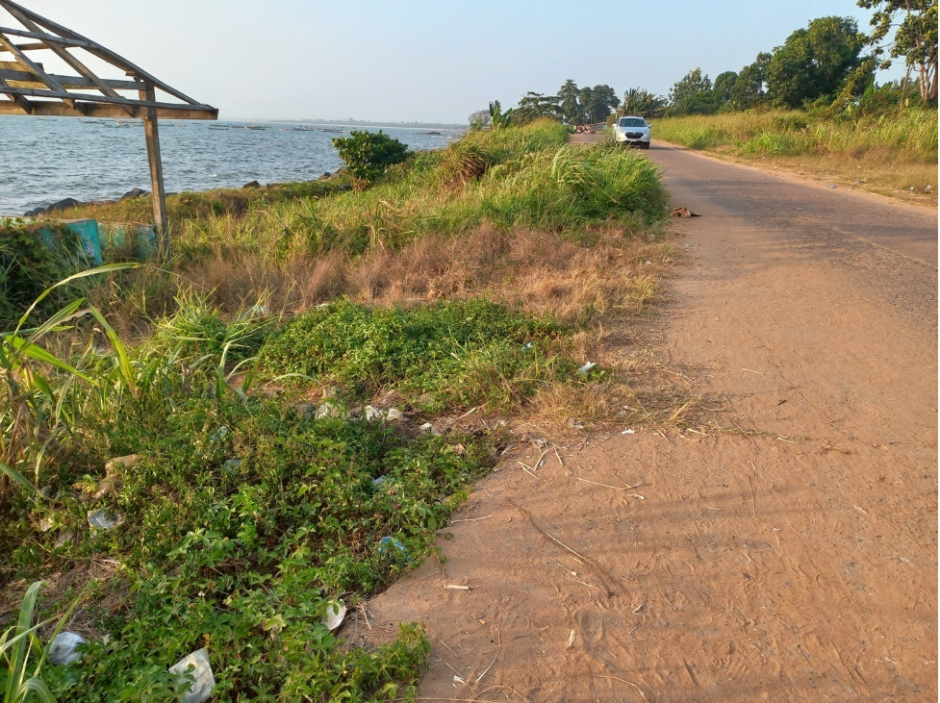
Coastal erosion caused by climate-induced rises in sea levels and intense tropical storms has already destroyed the homes of hundreds of families and put critical fisheries at risk. Nine of the country’s fifteen counties sit along the sea coast putting 60 per cent of the population at threat and threatening an estimated $US48million damage by 2100.
Low-lying Buchanan was one of the first places to feel the impact. In 2008, 20 houses were wiped away in the Bardor Wleh Town community. Many families were made homeless and some had to migrate to other nearby communities.
The Gibson family struggled to rebuild their livelihoods in a nearby community.
“The beach was a major source of income for the family,” says Bobby. “People came from as far as Monrovia during weekend and holidays to the beach. It was one of the leading beaches in Buchanan.”
A UNDP-backed $2.9m project in 2010 placed large rocks, known as a “revetment” along the shoreline from the port to the Atlantic Street area. The rocks worked. Communities feel safe for now. The UNDP expects them to hold back the sea for at least 40 years.
Now residents in neighboring Bardor Wleh and Corcorwein communities that are now threatened would like to see the wall extended to their areas.
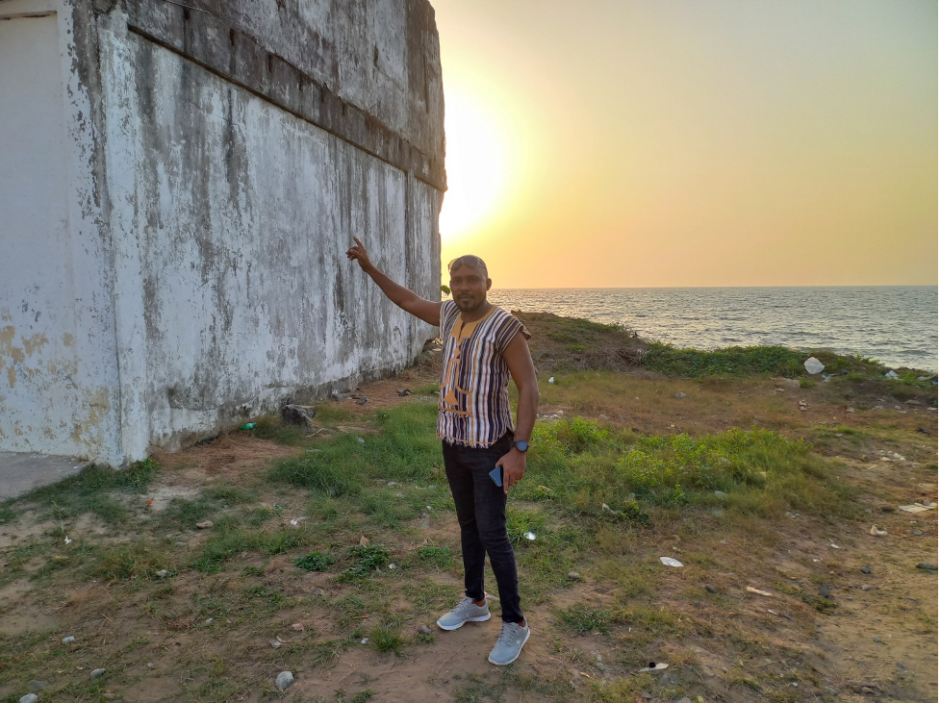
UNDP’s Energy and Environment Specialist Moses Massah says the Buchanan Project, in line with the approved project document was fully completed. But plans to extend the much needed rock wall further were thwarted because the Sirleaf administration refused to put up the co-financing international donors required in order to fund the project.
Massah is hoping there will be support from the Weah administration.
“Along with the government, we are in the process of resource mobilization to address the situation,” Massah says.
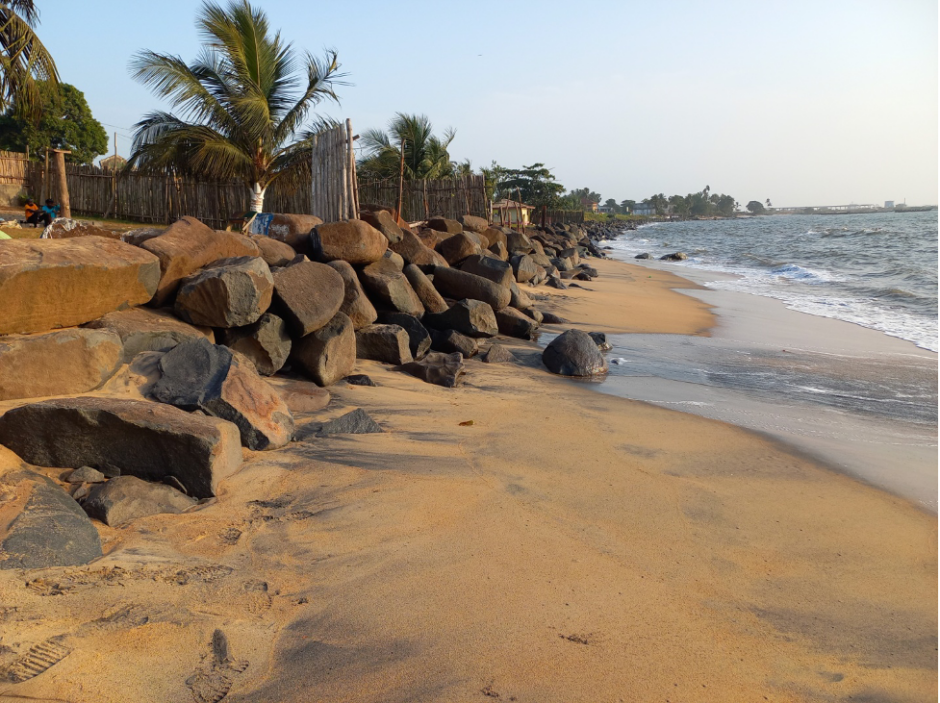
Jackson Wesseh’s house was among the 20 houses that were swallowed by the sea in Bardor Wleh Town in April 2008. He moved with his family to Corcorwein, another fishing community. He now works with a fishing cooperative of 50 men. The sea is now chasing him here too.
“The sea erosion caused plenty of damage in this community,” says Wesseh pointing to empty space on the shoreline. “From here all the way on that side that was buildings but the sea damaged everything.”
Wesseh and his crew repair nets on the beach waiting for the sea to calm down for them to make their daily voyage. The coastal defense did not reach Corcorwein. Wesseh wants the Government to extend the project here.
“Whenever the sea is full, this our side can really embarrass the canoes,” Wesseh says referring to the damage that high seas cause his boats. “So we are begging the government to throw some rocks on this side, that they will fix area that we will park these canoes there.”
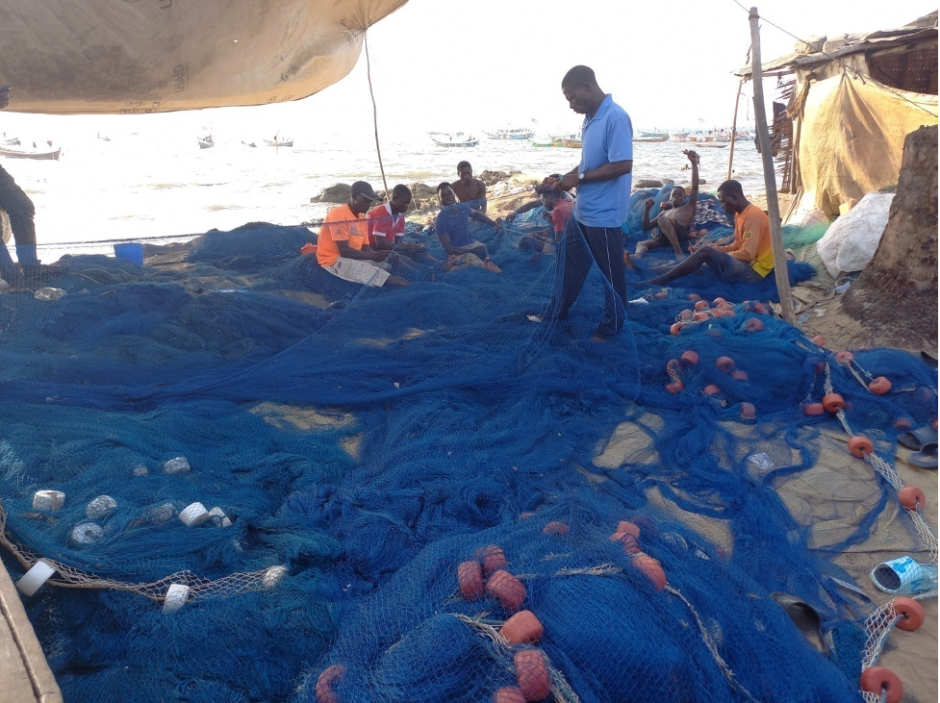
John Weah was born and grew up in Bardor Wleh Town. He clearly remembers waking up one night to see his house among the 20 that were washed away by the dark wave of the ocean in 2008. Now 64, he lives with his family in the same Corcorwein community as Wesseh. He is afraid every night he goes to sleep.
“We are still afraid because anything can happen,” Weah says. “We on this side here, when it [gets] dark, when the sea [gets] full for truth it can come all the way on this side.”
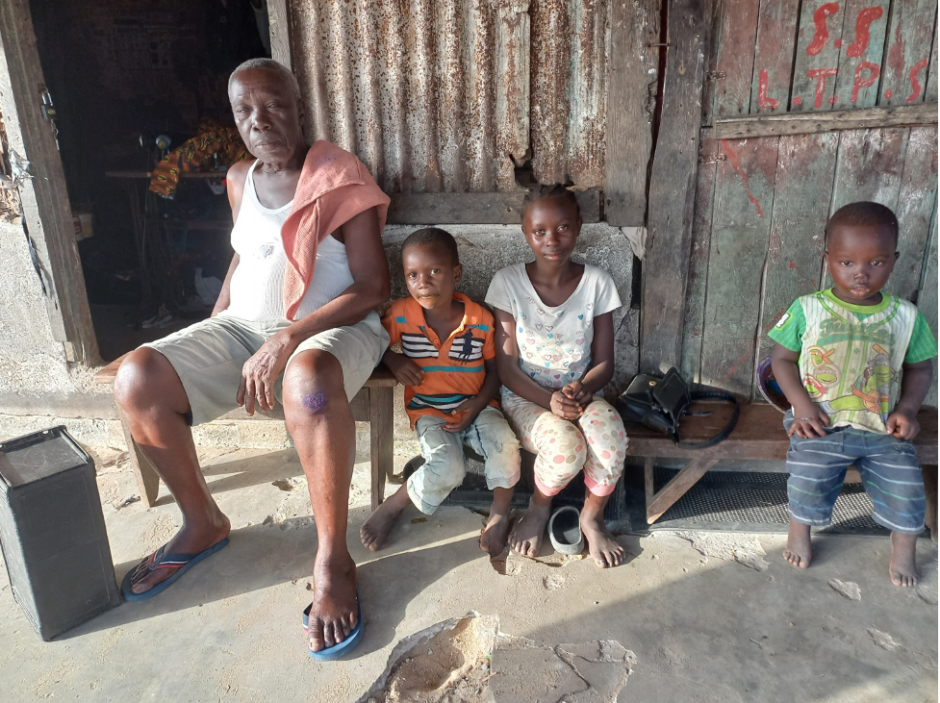
Migrating from one coastal community to another is a only short term solution says Jerome Nyenka, for chief of the Environment Protection Agency and now an Assistant Professor of Forest Economic, Forest Carbon and Climate Change at the University of Liberia. The rock walls will also not hold the sea back forever. Instead, Nyenka says the communities will need to adapt to survive the long term. He urges coastal communities stop building on the shore and change their mindset.
“One thing you cannot do to coastal community is infrastructure development,” says Nyenka. “If you start building on the beaches, it is more dangerous than unregulated sand mining. So, we need to change our attitude toward the coast. That is the first thing. The next thing is to do coastal defense. So you can combine the two: change your attitude toward the coastline and the beaches and do coastal defense intervention.”
The West Point community is the focus of coastal defence efforts now. Like Buchanan, West Point has been hit hard by the sea. More than 800 homes have been swallowed in West Point alone causing 6,000 people to be displaced. Its residents are crying out for help from their Government as the rainy season approaches usually from Mid-April.
“The erosion a been disturbing us so many years, carry our houses, carry even human being; we lose lives we lose houses,” says resident Jacob Jimmy.
The government and UNDP announced a major new project to protect the community at the end of last year. The $25.6 million Monrovia Metropolitan Climate Resilience project kicked off in January and will see a rock revetment put in place to hold back the sea.
US$17.2 million of this amount will come from the Green Climate Fund, an international fund made up of donations from rich countries to help low income countries adjust to climate change.$US1.5 million will come from the UNDP while the Liberian government is expected to put in $US6.8 million.
The UNDP also worked with the government to construct a revetment at New Kru Town and there are plans for a $US8.9m project in Greenville, Sinoe Count where coastal erosion has already eaten away one of Greenville’s main streets.
More coastal communities are crying out for help. In River Cess County, fishermen of several fishing communities including Klaygbay, Mannah Beach and Timbo Beach who for decades have made their livings from fishing say they are forced to move to nearby communities due to the damages caused to their landing sites by sea erosion.
Though there are no reports of homes being washed by sea erosion in River Cess, fishermen here are complaining about a drastic reduction in their catch. Nyenka says that is caused other effect of climate change.
Higher temperatures are melting ice caps in the North and South poles putting more fresh water into the ocean, increasing heavy storms and upsetting sea life reproduction. At the same time damage caused by human waste and cutting of mangroves in fragile coastal wetland areas is reducing spawning areas for fish.
“The ocean tide is rough. Most of the marine organisms that lay eggs, the moment the sea gets though, the eggs will be damaged,” Nyenka says. “So [species] that come off the sea and lay their eggs in the mangroves, when they are returning with their young ones to the ocean and when they come up with strong tide, all the young ones will die. And that will affect commercial activities; those who go to fishing will not get enough catch.”
UNDP Liberia Resident Representative Stephen Rodrigues says he has visited the communities and understands how badly impacted people are. But he says there is no way to hold the sea back forever.
“While such coastal and livelihood protection measures are extremely important, the bottom line is we simply have to better co-exist with nature,” Rodrigues says.
He says the only thing that is going to save Liberia’s coastal communities long term is stopping climate change.
“We all have a role to play in that,” Rodrigues says.
This story was a collaboration with New Narratives as part of the Climate Change Reporting Project. Funding was provided by the UK Foreign, Commonwealth and Development Office and the American Jewish World Service.
